At a time when the fight against global warming has become a priority, Kenneth Nsah returns to the use of languages in the promotion of the Congo Basin.
It exists a growing consensus that that we need not only science and technology, but also the arts, humanities and social sciences to address the global anthropogenic climate and environmental emergency currently threatening the world, including the Congo Basin in Africa central. Indeed, it is (almost) impossible to ignore the Congo Basin when talking about the ongoing global climate and environmental crisis.
The Congo Basin is unquestionably an international geostrategic hotspot due to its rich biological and cultural diversity and mineral wealth. The geostrategic importance of the Congo Basin is also significantly explained by its enormous capacity for carbon sequestration and climate mitigation through its tropical rainforests and the largest peatlands on the planet, absorbing about 4% global carbon emissions.
For some, the Congo Basin has now overtaken the Amazon Basin where deforestation rates are higher to become the first lung of the earth . This is due to the relatively low levels of deforestation and the discovery in 2017 of the largest peat bogs in the world in the Congo Basin.
No language, no communication
Nevertheless, the Congo Basin is locked in what I might call a climate-environment dilemma, given that the basin is not immune to climate change, biodiversity loss and environmental degradation. , despite its enormous potential for climate mitigation and biodiversity conservation.
The good news is that in addition to science and technology solutions, the arts, humanities and social sciences can also contribute to unraveling this climate-environment dilemma in the Congo Basin. Environmental communication, conceived in the broadest terms to include communication, journalism, environmental literature (discussed in my doctoral thesis et here ), and public diplomacy, among others, has a central role to play in unraveling this dilemma.
Without language, it should be noted, there will be no communication, including environmental. For this reason, and with ideas drawn from environmental humanitiesIncluding ecocriticism, environmental communication and l' ecolinguistics, I want to unpack the role of English and local languages in solving the climate and environmental crisis, otherwise known as the climate-environment dilemma, in the Congo Basin.
Language is an absolute necessity to ensure both international (outward-looking) and national or local (inward-looking) climate communication and diplomacy on the Congo Basin. In this regard, I will mainly focus on communication initiated by national actors such as activists, politicians, diplomats, civil societies, ENGOs, etc. in the Congo Basin, whether outward or inward.
Where is English in international communication in the Congo Basin?
So far, international climate communication, in particular public diplomacy and advocacy, on the Congo Basin is done mainly in French. And this for obvious reasons. The rainforests of the Congo Basin extend over six Central African countries: Cameroon, the Central African Republic, the Republic of Congo (Congo-Brazzaville), the Democratic Republic of Congo (DRC or Congo-Kinshasa), the Gabon and Equatorial Guinea.
With the exception of Cameroon – which has English and French as its official languages, with a majority French-speaking population and a minority English-speaking population – and Equatorial Guinea – which has Spanish as its official language, the other four countries of the Congo Basin have French as their official language.
But I argue that very limited environmental communication and public diplomacy by the government and other climate actors in English is partly responsible for the international invisibility of the Congo Basin. And that includes the relatively less climate finance that the Congo Basin attracts. Yet there is no debate about the established status of English as an international lingua franca. Indeed, English is the main language of global communication in the fields of education, science, technology, environment, climate, politics, diplomacy, etc.
That said, let me give two examples of the far-reaching reach of international environmental communication on the Congo Basin in English. Firstly, in my opinion, the most internationally known young climate activist in French-speaking Africa is Remy Zahiga of the DRCongo and he mainly earned this status because of his deliberate use of English in his climate activism. In a recent article on LinkedIn, inspired by his participation in a panel at the Nuclear Ban Forum and at the first meeting of States Parties held in Vienna, Austria, June 18-22, 2022, Zahiga admitted that not speaking English poses a big challenge for young climate activists from French-speaking African countries.
Additionally, most (but not all) of the other world-renowned young climate activists in Africa come from English-speaking countries like Uganda, Kenya, Nigeria and South Africa.
Secondly, I published an article on the role of literature in solving the climate crisis in the Congo Basin in May this year (2022) in The Conversation Africa in English and French. By the end of July 2022, the English article had registered almost 6000 readers while the French article was still below 1000 readers. An earlier French article published in 2019 was still less than 4000 readers.
However, from my personal observation, the two most vocal environment ministers internationally in the Congo Basin are Lee white, Gabonese Minister of Forests and the Environment, and Arlette Soudan-Nonault, Minister of the Environment, Sustainable Development and the Congo Basin of Congo-Brazzaville. Of the two, only Lee White – of British origin – is bilingual in English and French, while Arlette Soudan-Nonault gives all her international interviews in French. Maybe with the recent admission of Gabon into the Commonwealth of Nations it can be expected that English will soon become an official language in Gabon and add to its already visible international environmental communication and public diplomacy.
It is surprising that Cameroon is not yet taking advantage of its official bilingual status in English and French to spearhead international environmental communication, advocacy and public diplomacy on the Congo Basin. This should include, for example, the appointment of ministers professionally bilingual in English and French to head the departments responsible for the environment, climate, forestry, sustainable development and the Congo Basin. And take the lead in international climate diplomacy for the Congo Basin.
Indeed, like Gabon, the other countries of the Congo Basin, including Cameroon, should intensify the use of English in their international communication on the climate. Far from advocating the abandonment of French, my argument is that the countries of the Congo Basin will gain more if they not only conduct their international environmental communication and diplomacy in French and Spanish, but also significantly in English. This should apply to government institutions, activists, researchers, civil society organizations, ENGOs, business owners, etc.
Indigenous and local languages for domestic or local communication
We are constantly reminded of the need to think globally and act locally to tackle the ongoing climate and environmental crisis. Accordingly, there are important linguistic elements that we must consider in terms of domestic or national efforts to deal with the crisis in the Congo Basin and in the world.
As ecolinguistics reminds us, climate change and environmental degradation lead to both biodiversity loss and cultural and linguistic extinction. For this reason, national and local efforts aimed at environmental communication and education in the Congo Basin must go beyond the use of languages inherited from colonization such as English, French and Spanish. to include local and indigenous languages like Lingala, Lamnso, Fang, Batwa, Sango, Fulfulde, etc.
In fact, governments, ENGOs, communicators, educators and other stakeholders must invest in the documentation, preservation and deployment of indigenous and local languages to ensure environmental education and awareness as well as the identification and promotion of sustainable indigenous knowledge systems and practices.
At the transnational level, languages like Lingala which is widely spoken in both Congos and Kiswahili which is spoken in DR Congo and much of South East Africa should be used as much as possible. Fortunately, Kiswahili was recently adopted as one of the official languages of the African Union (AU). There are also transnational languages spoken across the borders of Cameroon, Central African Republic, Congo-Brazzaville, Gabon, and Equatorial Guinea.
At the national level, in Cameroon for example, widely spoken languages such as Pidgin English, Camfranglais and Fulfulde should be used where appropriate. Indeed, no local or indigenous language should be left behind in this momentum. There are about 300 ethnic languages spoken in Cameroon. Likewise, there is about 215 languages spoken in the DRCongo. In short, each of the six Congo Basin countries has many indigenous and local languages – for example, the languages of the Baaka, Batwa, Bantu, Tikar, etc. – which should be used for this purpose.
And it is also important to ensure the translation and interpretation of environmental information and knowledge from languages inherited from colonization such as English, French and Spanish into all local and indigenous languages. In fact, this is imperative not only to address the climate and environmental crisis, but also to ensure that science and knowledge are transmitted to African peoples in their ancestral or mother tongues.
However, translation and interpretation must also be reciprocal in order to enable the transmission of local and indigenous knowledge systems and practices, particularly those that are more protective of the environment and those that demonstrate the mechanisms of mitigation, d adaptation and resilience of populations, to a wider global audience. In this regard, Ngugi wa Thiong'o as a fervent promoter of African languages advocates not only their documentation and preservation but also the translation between them and what he calls a triple linguistic policy.
In conclusion, adopting a robust multilingual approach that meaningfully includes English alongside other languages inherited from colonization – such as French, Spanish and Portuguese – is crucial for communication and advocacy. international environmental. This must go hand in hand with the deployment of indigenous and local languages – such as Kikongo, Lingala, Pidgin English, Kikongo, Bassa, Baaka, Batwa, Fang, Fulfulde, Mbesa, Mendumba, blood, etc. – for inward-looking climate communication, education and awareness. In doing so, we will be able to leverage language pieces to address climate and environmental issues and ensure sustainable development in the Congo Basin.
**Kenneth Nsah, aka Nsah Mala, is a journalist, children's author, poet, writer, translator and literary scholar who works professionally in English and French. He has published journalistic articles in Times Higher Education (UK), The Conversation (Africa and France) and ERA Environment (France/Comoros). Under his pen name Nsah Mala, he is the author and co-editor of numerous volumes of poetry in English and French. And he has published numerous peer-reviewed articles and book chapters on issues such as migration, environment and climate change from an interdisciplinary literary perspective. In 2022, Nsah obtained her PhD in Comparative Literature from the University of Aarhus (Denmark) with a thesis on the contribution of literary texts to solving climate and environmental problems in the Congo Basin.
This article was published on Pan African Visions website in English, then translated by Le Journal de l'Afrique with the permission of the author.















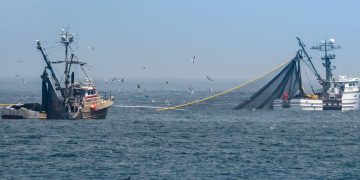
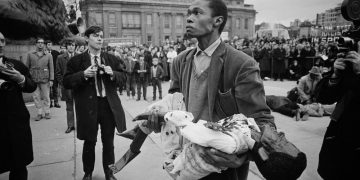
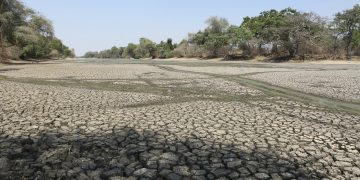
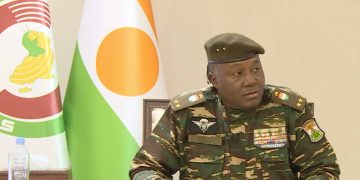
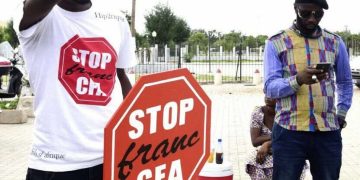
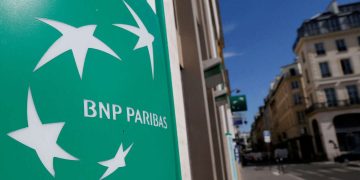
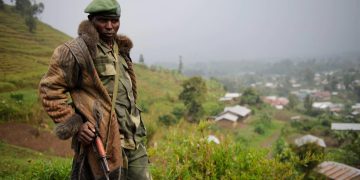
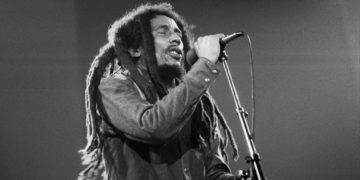



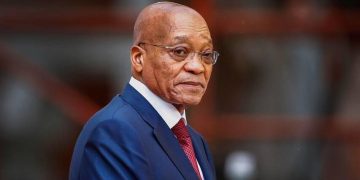
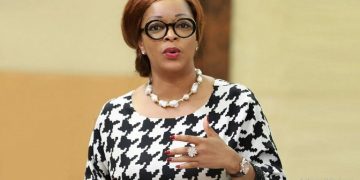
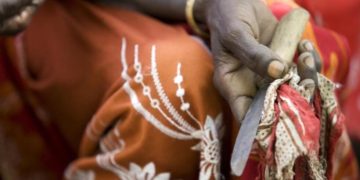
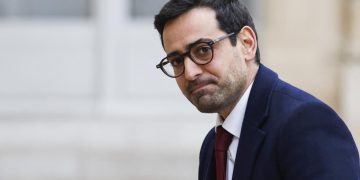
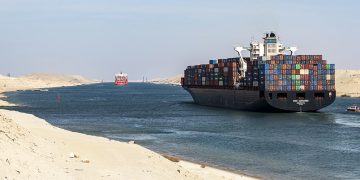
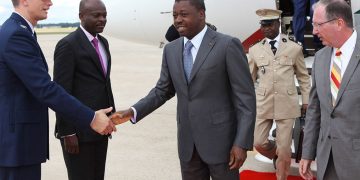


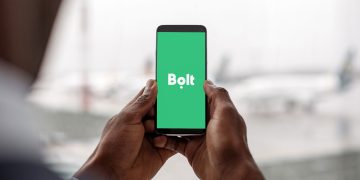
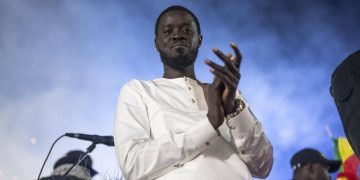
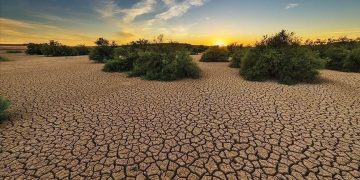


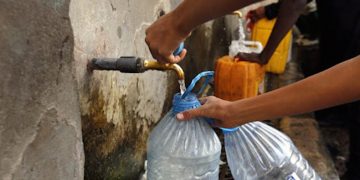
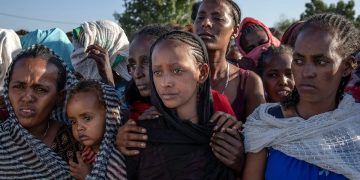

![[Editorial] 30 years later, is apartheid really over?](https://lejournaldelafrique.com/wp-content/uploads/2021/06/caricature-jda-apartheid-360x180.jpg)
![[Edito] Gabon and Commonwealth: the whims of Prince Ali](https://lejournaldelafrique.com/wp-content/uploads/2021/06/caricature-JDA-Bongo-360x180.jpg)
![[Editorial] Facebook and Twitter, more dictators than dictators?](https://lejournaldelafrique.com/wp-content/uploads/2021/06/Caricature-JDA-FB-TW-360x180.jpg)
![[Edito] Rwanda: for the French apologies, we will have to go back](https://lejournaldelafrique.com/wp-content/uploads/2021/05/Caricature-rwanda-JDA-360x180.jpg)
![[Edito] Guinea: Alpha Condé, the oppressed turned oppressor](https://lejournaldelafrique.com/wp-content/uploads/2021/05/Caricature-Alpha-Conde-360x180.jpg)
![[Edito] CFA Franc: a facelift cut to measure for France](https://lejournaldelafrique.com/wp-content/uploads/2021/05/Caricature-JDA-CFA-360x180.jpg)
![[Edito] Riyad Mahrez: One, two, three, viva l'Algérie!](https://lejournaldelafrique.com/wp-content/uploads/2021/05/caricature-Mahrez-360x180.jpg)
![[Edito] Niger: Mohamed Bazoum begins a delicate balancing act](https://lejournaldelafrique.com/wp-content/uploads/2021/04/image_6483441-1-360x180.jpg)
